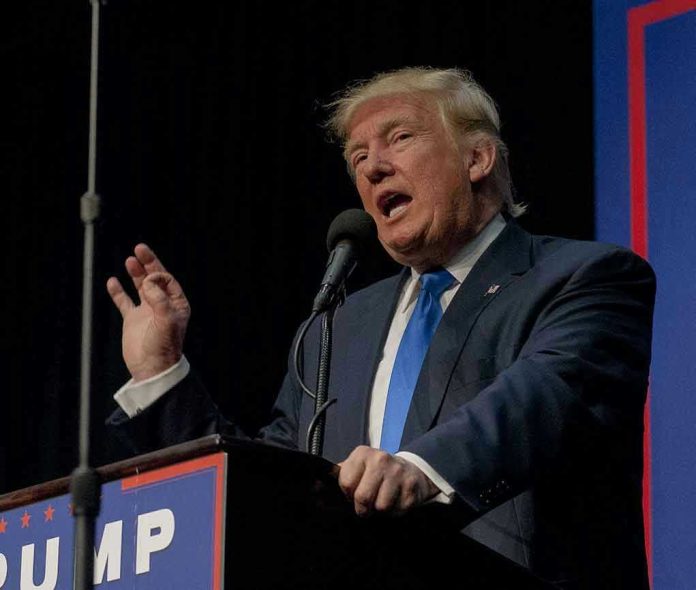
Trump’s thunderous warning to the UN about Europe’s fate has ignited a firestorm, forcing the world to confront just how much one man’s words can shake the pillars of Western policy—and the very soul of the continent itself.
Story Snapshot
- Donald Trump delivered a blistering critique of Europe’s immigration and energy policies at the United Nations.
- He claimed Western Europe faces collapse if current trends continue unchecked.
- Trump’s rhetoric drew sharp lines between American and European approaches to Islam and border security.
- His address raised questions about the future of Western alliances and the durability of European identity.
Trump’s UN Speech: A Dire Warning to Europe
Donald Trump, never one to mince words, addressed the United Nations with a message few European leaders wanted to hear. He declared that the combination of unchecked immigration and radical energy reforms would spell the end of Western Europe as we know it. To Trump, these policies are not just flawed—they are suicidal, destined to drive European countries, in his provocative words, “to hell.” The assembly, already uneasy, braced for the aftershocks of his remarks.
His speech was not a gentle nudge toward reconsideration but an air raid siren. Trump insisted that the continent’s “suicidal energy ideas” and porous borders could not be sustained, framing the issue as an existential crisis rather than a policy debate. In his view, the influx of migrants—many from majority-Muslim countries—threatens to unravel the social fabric and overwhelm Europe’s ability to integrate newcomers. The undertone: act now, or face irreversible decline.
Dividing Lines: Islam, Identity, and Security
Trump’s critique of European immigration policies hinges on a broader narrative popular among his base: Western civilization is under siege, and the greatest threat comes from within. He paints Islam not simply as a faith, but as a force incompatible with European values—a viewpoint that has stirred controversy on both sides of the Atlantic. Mainstream European leaders have taken a more inclusive approach, but Trump’s warning signals a widening gulf between American and European priorities.
The American conservative perspective often sees Europe’s embrace of multiculturalism as naïve and dangerous. Trump’s comments reflect this skepticism, suggesting that European openness to Muslim immigrants is eroding national identity and security. His assertion that “your countries are going to hell” is less a policy critique than a cultural alarm bell, ringing for anyone who fears the loss of Western traditions and values.
Energy Policy: The Second Front in Trump’s Critique
While immigration dominated his tirade, Trump also zeroed in on Europe’s “suicidal energy ideas.” He lambasted the continent’s rapid pivot to green energy—policies designed to combat climate change but, in Trump’s estimation, undermining economic stability and geopolitical leverage. He argued that abandoning reliable fossil fuels in favor of renewables would leave Europe vulnerable, both economically and strategically, especially in the face of global instability.
For Trump, energy policy is inseparable from national security. He contends that dependence on foreign energy sources, or on intermittent renewables, exposes Europe to coercion and chaos. European leaders, in contrast, see the shift to clean energy as essential for long-term survival. Trump’s warning, however, raises the specter of blackouts, economic downturns, and strategic weakness, urging a return to what he calls common-sense energy policy before it is too late.
The Fallout: Alliances, Identity, and the Future of the West
Trump’s speech forced the world to grapple with uncomfortable questions. Are European societies truly at risk of collapse, or is this rhetoric designed to stoke fear and consolidate power? His words have found resonance among those who feel alienated by rapid social change and frustrated by the perceived failures of elite leadership. Yet, many European officials dismissed Trump’s remarks as inflammatory and disconnected from reality.
What cannot be denied is the impact of Trump’s intervention. He has injected urgency into debates over immigration, energy, and identity, moving them from the realm of abstract policy to existential struggle. Whether Europe heeds his warning or doubles down on its chosen path remains to be seen, but the battle lines are clearer than ever. The fate of Western Europe, and by extension the Western alliance, now hangs in the balance, with the world watching to see who will blink first.



